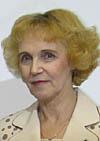References
- Order of the Ministry of Education of the Russian Federation of May 31. 2021. № 287. «On Approval of the Federal State Educational Standard of Basic General Education» [Electronic resource]. Electron. dan. URL: https://www.garant.ru/products/ipo/prime/doc/401333920/ (date of access: 20.04.22). (In Russ.)
- Andreev V. I. Pedagogy: Textbook course for creative self-development. Kazan, 2000. 565 p. (In Russ.)
- Andreev V. I. Pedagogical heuristics for creative self-development multidimensional thinking and wisdom. Kazan, 2015. 288 p. (In Russ.)
- Izotova E. I. Cennostno-evristicheskaya tekhnologiya obucheniyapodrostkov resheniyu ekologicheskih problem : avtoref. dis. … kand. ped. Petrozavodsk, 2004. 24 p. (In Russ.)
- The concept of general ecological education for sustainable development (2010). In: Ekologicheskoe obrazovanie: do shkoly, v shkole, vne shkoly. 2012. № 2. P. 4‒15. (In Russ.)
- Korol A. D. Modelirovanie sistemy evristicheskogo obucheniya na osnove dialoga : avtoref. dis. … d-ra ped. nauk. Moscow, 2009. 39 p. (In Russ.)
- Nesgovorova N. P. Podgotovka k ekologo-pedagogicheskoj deyatel'nosti v sisteme nepreryvnogo professional'nogo obrazovaniya : avtoref. dis. … d-ra ped. nauk. Moscow, 2015. 43 p. (In Russ.)
- Nesgovorova N. P. Saveliev V. G. Ecological and pedagogical activity in the system of continuous professional education. In: Sovremennye problem nauki i obrazovaniya. 2017. № 5. (In Russ.)
- Sadykova A. R. Evristicheskoe obuchenie prepodavatelya vysshej shkoly kak component nepreryvnogo pedagogicheskogo obrazovaniya : avtoref. dis. … d-ra ped. nauk. Moscow, 2012. 44 p. (In Russ.)
- Selevko G. K. Modern educational technologies. Moscow, 1998. 256 p. (In Russ.)
- Khutorskoy A. V. Didactic heuristics. Theory and technology of creative learning. Moscow, 2003. 416 с. (In Russ.)
- Khutorskoy A. V. Heuristic learning: Theory, methodology, practice. Moscow, 1998. 266 p. (In Russ.)
- Shmakov S. A. Student games as a phenomenon of culture: monograph. Moscow, 1994. 239 p. (In Russ.)
- Babakova T. A. Ecologization of the regional component of school education as a means of implementing the principle of additionality [Electronic resource]. In: Nepreryvnoe obrazovanie: XXI vek [Lifelong education: the 21stcentury]. 2015. № 3 (11). Electron. dan. DOI: 10.15393/j5.art.2015.2924 (date of access: 20.04.22). (In Russ.)
- National Pedagogical Encyclopedia. [Electronic resource]. Electron. dan. URL: http://didacts.ru/ (date of access: 20.04.22). (In Russ.)













